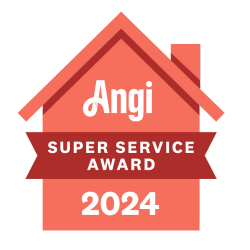Central air conditioning is a popular choice for homeowners looking to keep their homes comfortable during the hot summer months. However, before deciding to install central air, it’s essential to understand the costs involved. In this comprehensive guide, we’ll explore the various factors that affect the cost of installing central air, average costs for different scenarios, and cost-saving tips to help you make an informed decision.
Factors That Affect the Cost of Installing Central AC
Several factors can significantly impact the cost of installing central air in your home. One of the primary factors is the size of your home or the space you want to cool. Larger homes require more powerful AC units and extensive ductwork, which increases the overall cost. The type and efficiency of your chosen AC unit also affect the final price. Higher-efficiency units typically cost more upfront but can lead to energy savings in the long run.
Another factor to consider is the need for ductwork installation or modification. If your home doesn’t have existing ductwork, the installation process will be more complex and costly. The location and accessibility of the installation area can also affect labor costs. If the installation requires working in tight spaces or hard-to-reach areas, it may take longer and increase labor expenses.
Regional labor costs and additional features, such as zoning or smart thermostats, can also impact the overall cost of installing central air.
Average Central Air Installation Costs
The cost of installing central air can vary greatly depending on the size of your home and other factors mentioned earlier. On average, homeowners can expect to pay between $4,000 and $8,000+ for a basic central air installation. However, this price range can go up to $10,000 or more for larger homes or those requiring extensive ductwork modifications. It’s important to note that your ac installation will require a new evaporator coil and potentially a new furnace is the indoor system is old and not compatible with new ac technology.
Ductless mini-split systems are an alternative to traditional ducted systems and can be a cost-effective option for smaller homes or spaces. These systems typically cost between $4,000 and $7,000 per unit, depending on the size and efficiency of the unit.
Cost Breakdown for Central Air Conditioner Installation
To better understand the cost of installing central air, let’s break down the individual expenses involved:
- AC Unit: Depending on its size, efficiency and brand, the cost of the AC unit can vary greatly. Financing solutions are available for your AC upgrade.
- Labor: Labor costs for installation can vary widely based on regional rates and the job’s length and complexity. Make sure you hire a contractor who has employees installing your system, and not subcontractors, as you’ll likely receive a better quality installation for the price.
- Ductwork: If your home requires new ductwork or significant modifications to existing ductwork, expect to pay additionally. These system alterations can cause the length of the replacement process to increase, which will likely impact the price.
- Electrical Work: Depending on your home’s existing electrical setup, you may need to upgrade your electrical panel or run new wiring to accommodate the AC unit. Electrical work can add $500 to $1,500 to the total cost.
- Permits and Inspections: Most local governments require permits for HVAC installations, which can cost between $100 and $500. The HVAC company you choose should include this cost in the total estimation of the project, so you shouldn’t be held accountable for filing for this permit.
- Additional Costs to Consider: When installing central air, additional costs may be beyond the basic installation expenses. If you have an old HVAC system that needs to be removed, this can add to the overall cost. Upgrading your electrical panel to accommodate the new AC unit can also increase the price.
If your existing ductwork requires modifications or repairs, this can add to the cost of the project. Additionally, if your home lacks sufficient insulation, you may need to invest in upgrading your insulation to ensure the efficiency of your new central air system.
Cost-Saving Tips for Installing Central AC
While installing central air can be a significant investment, there are several ways to save money on the project:
- Choose an Energy-Efficient Unit: Investing in a high-efficiency AC unit can lead to long-term energy savings, offsetting the initial cost.
- Ensure Proper Sizing: Work with an HVAC professional to ensure your home’s AC unit is sized correctly. An oversized unit will cost more upfront and lead to higher energy bills and reduced comfort.
- Compare Quotes: Get quotes from HVAC contractors to ensure you get a fair work price. However, be cautious of extremely low bids, which may indicate subpar workmanship or hidden costs.
- Take Advantage of Off-Season Discounts: Many HVAC professionals offer discounts during the off-season (typically fall and winter) when service demand is lower. Scheduling your installation during these times can lead to significant savings.
- Explore Financing Options: Some HVAC professionals offer financing options to help spread out the installation cost over time. Be sure to compare interest rates and terms before committing to a financing plan.
Long-Term Costs and Benefits
While the upfront cost of installing central air can be substantial, it’s essential to consider the long-term costs and benefits. A high-efficiency AC unit can save significant energy over time, reducing your monthly utility bills. However, it’s crucial to factor in the ongoing maintenance costs of your central air system, such as regular tune-ups and filter replacements.
The expected lifespan of a central air conditioning unit is typically 15-20 years, depending on maintenance and usage. Investing in a high-quality unit and properly maintaining it ensures that your central air system provides reliable comfort for years to come.
Installing central air is a significant investment that requires careful consideration of the costs involved. By understanding the factors that affect the cost, average prices for different scenarios, and potential cost-saving opportunities, you can decide whether central air is right for your home and budget.
Remember to work with a reputable, licensed HVAC contractor who can provide accurate pricing estimates, ensure proper sizing and installation of your AC unit, and offer ongoing maintenance services. Investing in a high-quality central air system and properly maintaining it allows you to enjoy reliable, efficient cooling comfort for years to come.
The Logan Difference
At Logan Services, we take pride in being a family-owned and operated business that has been serving our community since 1969. With over five decades of experience, we have established a reputation for delivering exceptional service and quality installations that set us apart from the competition.
Our commitment to excellence begins with our rigorous training program, which all our installers must complete before working on any project. This ensures that our team has the knowledge, skills, and expertise necessary to deliver the highest quality workmanship on every job.
We understand that a new HVAC installation can be a significant investment for our customers, which is why we go above and beyond to ensure their satisfaction. Our team takes the time to carefully plan each project carefully, ensuring we have all the necessary parts and equipment before beginning work to avoid delays and minimize customer frustration.
At Logan Services, communication is key. We keep our customers informed throughout the installation process and promptly address any questions or concerns they may have. Our experienced install managers oversee each project, using a comprehensive checklist to ensure that every aspect of the installation meets our strict quality standards.
Once the installation is complete, we conduct a thorough walkthrough with the customer, demonstrating how to operate and troubleshoot their new system. We also assist with warranty registration and documentation to protect our customers’ investments and provide them with added peace of mind.
Beyond our dedication to quality workmanship and customer service, we are committed to positively impacting our community. We regularly participate in local events, sponsor giveaways, and lend a helping hand to our friends and neighbors in need.
When you choose Logan Services for your HVAC needs, you can trust that you are working with a company that truly cares about its customers and community. Experience the Logan Difference for yourself and discover why we have been the trusted choice for HVAC services since 1969.
Frequently Asked Questions (FAQs)
How much does it cost to install central air in a 1,500-square-foot home?
Installing central air in a 1,500-square-foot home could cost between $4,000 and $8,000. This price range includes the AC unit cost, labor, ductwork, electrical work, permits, and inspections.
Can I install Central Air myself?
While trying a DIY installation to save money may be tempting, hiring a professional HVAC contractor is highly recommended. Central air installation requires specialized knowledge, skills, and tools to ensure the system is properly sized, installed, and functioning efficiently. Attempting a DIY installation can lead to costly mistakes, safety hazards, and potential damage to your home.
How long does it take to install central air?
The duration of a central air installation project can vary depending on the job’s complexity and the experience of the installing company, but most installations can be completed within 1-2 days. However, the project may take longer if your home requires extensive ductwork modifications or other additional work.
Is central air worth the cost?
The decision to install central air depends on your personal comfort preferences, budget, and long-term plans for your home. While the upfront cost can be significant, central air can provide consistent, efficient cooling throughout your home, improve indoor air quality, and potentially increase your home’s resale value. If you plan to stay in your home for several years and value the comfort and convenience of central air, it can be a worthwhile investment.




















